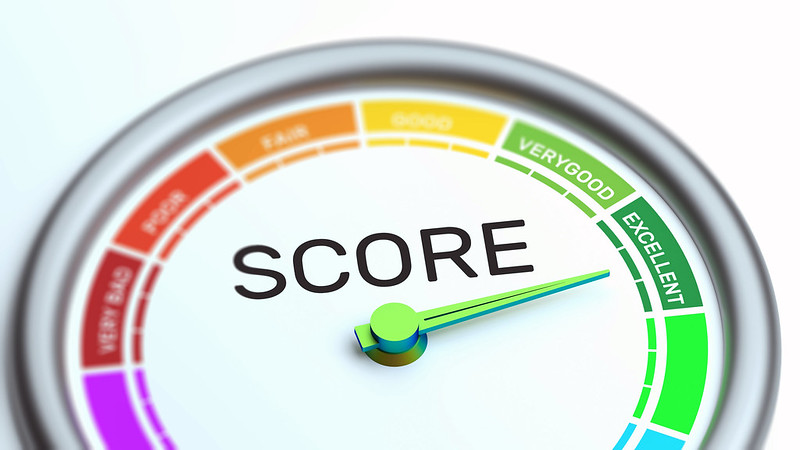In the realm of personal finance, your credit score holds immense significance. It is a numerical representation of your creditworthiness, helping lenders assess the risk of extending credit to you. A high credit score opens doors to better interest rates, loan approvals, and credit card offers, while a low score may lead to loan rejections and higher interest charges. To maintain a healthy credit score and financial well-being, regular monitoring of your credit report is essential. This article will delve into the reasons behind the importance of reviewing your credit report and provide insights into how often you should do it.
Understanding Credit Scores

Before we explore the frequency of credit report checks, let’s gain a clear understanding of credit scores. Your credit score is calculated based on various factors, including payment history, credit utilization, length of credit history, types of credit accounts, and recent credit inquiries. The scoring models, commonly FICO and VantageScore, use this information to generate a three-digit number, with higher scores indicating better creditworthiness.
Importance of Regular Credit Report Checks
Your credit report is a comprehensive record of your credit history and financial behavior. It is essential to review it periodically to identify any errors or discrepancies that might negatively impact your credit score. Errors can include incorrect personal information, accounts that do not belong to you, or inaccurate payment histories. Detecting and correcting these errors can prevent potential damage to your creditworthiness.
Additionally, reviewing your credit report regularly allows you to spot signs of identity theft or fraudulent activities. Unauthorized accounts or inquiries on your report could be indicators of someone trying to misuse your identity, and early detection can help you take necessary actions to prevent further harm.
How Often Should You Check Your Credit Report?
While there is no one-size-fits-all answer to this question, financial experts recommend reviewing your credit report at least once a year. By doing so, you can maintain a good grasp of your financial health and ensure that all the information on your report is accurate.
However, certain life events may necessitate more frequent credit report checks. For instance, if you are planning to apply for a major loan, like a mortgage or an auto loan, it’s wise to check your report several months in advance. This allows you to identify any issues and make improvements before the lender reviews your credit.
How to Obtain Your Credit Report
Obtaining your credit report is a straightforward process. There are three major credit reporting agencies – Equifax, Experian, and TransUnion – each of which is required to provide you with a free credit report every 12 months. You can visit AnnualCreditReport.com to access all three reports once a year. Alternatively, you can stagger the requests and get one report every four months from each agency.
The Process of Reviewing Your Credit Report
When you receive your credit report, it’s essential to understand the information it contains. The report will have sections for personal information, credit accounts, payment history, and public records. Take the time to review each section carefully and ensure all the details are correct. Pay attention to any late payments, high credit card balances, or derogatory marks that might be impacting your score.
Addressing Errors and Disputes
If you spot any inaccuracies in your credit report, it’s crucial to take action promptly. You have the right to dispute any errors with the credit reporting agency. Gather evidence supporting your claim and submit a dispute letter explaining the inaccuracies. The agency will investigate the matter and correct the information if they find it to be incorrect.
Maintaining a Healthy Credit Score

While regular credit report checks are vital for spotting errors, maintaining a healthy credit score requires consistent financial responsibility. Here are some tips to improve your credit score:
- Pay your bills on time: Late payments can significantly impact your credit score.
- Keep credit card balances low: High credit utilization can lower your score.
- Maintain a mix of credit accounts: A healthy mix of credit cards and installment loans can positively affect your score.
- Avoid opening multiple new credit accounts: Rapid credit inquiries can be seen as a sign of financial instability.
The Role of Credit Monitoring Services
Credit monitoring services can be beneficial for those who want continuous monitoring of their credit report. These services alert you to any changes or suspicious activities on your report, giving you peace of mind. However, it’s essential to choose a reputable service and be aware that some may come with additional costs.
How Credit Score Checks Affect Your Score
When you check your credit report, it results in what is called a “soft inquiry,” which does not impact your credit score. Soft inquiries are visible only to you and do not affect your creditworthiness. On the other hand, “hard inquiries” occur when a lender checks your credit report in response to a credit application. Multiple hard inquiries within a short period can temporarily lower your score, so it’s best to limit credit applications to when necessary.


Leave a Reply